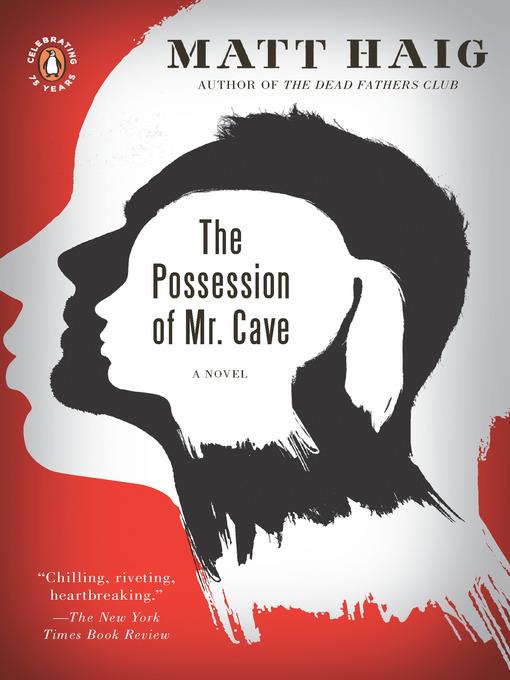
The Possession of Mr. Cave
- اطلاعات
- نقد و بررسی
- دیدگاه کاربران
نقد و بررسی

November 17, 2008
“Could it have been that the desire to protect is the desire to possess?” wonders antiques dealer Terence Cave in Haig’s overwrought study of a father creepily bent on protecting his beautiful 15-year-old daughter, Byrony. Beset by tragedy—his wife was murdered and, later, Byrony’s twin, Reuben, was accidentally killed by bullies—Terence focuses all his energy on Byrony, but when she begins sneaking out to meet boys, Terence’s stepped-up efforts to thwart her behavior backfire, and soon she’s seeing one of the boys involved in Reuben’s death. As Terence’s drive to protect rapidly morphs into a dangerous obsession, his dead son’s spirit begins to haunt him, and Bryony pulls further away from her “weird, creepy fascist” father. The themes of possession and control are pounded out repeatedly, and Terence seems like a construct more than a person, coming off as repellant rather than complex and troubled. What could have been an original look at human relationships unfortunately devolves into a heavy-handed study.

January 1, 2009
A history of grievous family losses transforms a mild-mannered antiques dealer into a judgmental "fascist " (his daughter 's word) in British author Haig 's latest novel.
Haig (The Labrador Pact, 2008, etc.) writes books in which ordeals endured by endangered families are suggestively linked to circumstantially similar literary works (e.g., Shakespeare 's —as in his novel The Dead Fathers Club 's reworking of Hamlet). Thus, protagonist Terence Cave 's determination to protect his surviving loved one —his musically gifted daughter Bryony —channels Keats 's language and Beethoven 's harmonies, in a disturbed orchestration of overprotectiveness and paranoia. For the death of Bryony 's "slow " twin brother Reuben, resulting from vicious neighborhood bullying, has followed the suicide of her paternal grandmother and the murder of Bryony 's own mother (during a botched robbery). In a book-length "letter " written in Terence 's imagination to the increasingly indignant Bryony, Terence attempts to explain fears that drive him to burden her with draconian rules, harass and interrogate her friends and, finally, confront her "unworthy " boyfriend Denny —who embodies a climactic surprise all too easily foreseen by the reader. Haig labors mightily, overextending what 's essentially an idea for a short story, adhering to Terence 's obsessed viewpoint, as the character 's delusive imaginings lead to outright hallucinations and a final violent act. The ironies are predictable and jejune, the banalities and truisms (e.g., humans ' need to learn the passive "wisdom " of animals) legion, the whole mishmash embarrassingly contrived and over the top. Only the superb opening scene —that of Reuben 's pathetic death —carries genuine conviction. It raises expectations that the rest of the book utterly fails to satisfy.
A bad book from a good writer who needs a new subject.
(COPYRIGHT (2009) KIRKUS REVIEWS/NIELSEN BUSINESS MEDIA, INC. ALL RIGHTS RESERVED.)

January 15, 2009
What otherwise might be a mundane story of an overprotective father and his teenage daughter becomes involving when it is revealed early on that he is mysteriously haunted by the spirit of his recently deceased son. The title's double entendre indicates that this is a novel with many subtexts. The work can be read as the confessions of a middle-class intellectual who considers anything beyond his classical art, music, and literature-based comfort zone to be uncivilized. But it's also about the frustrations of an aging man who feels alienated by today's youth culture. British novelist Haig is no stranger to the theme of family tragedy, though his previous works were told from the perspective of a Labrador canine ("The Last Family of England") and an 11-year-old boy ("The Dead Fathers Club"). Haig's use of metaphors to reflect the protagonist's emotional state is guaranteed to stimulate the reader's imagination. Thoroughly capturing a father's desperation, fear, pain, and madness over family fatalities, Haig is a good interpreter of the human soul. Recommended for both public and academic libraries.Victor Or, Surrey P.L. & North Vancouver City P.L., B.C.
Copyright 2009 Library Journal, LLC Used with permission.

February 15, 2009
Terence Cave is no stranger to grief. The London antique dealers mother was a suicide, while both his wife and son died cruelly violent, unnecessary deaths. As a result, he is obsessed with the well-being of his only surviving child, teenage daughter Bryony. When he begins to notice disturbing changes in her behavior, he turns from concerned parent to stalker, with disastrous consequences. English writer Haigs third novel, like his first twoThe Dead Fathers Club (2007) and The Labrador Pact (2008)is ingeniously offbeat, though much darker than the others. Things take an especially bleak turn when Mr. Cave appears to become possessed by the spirit of his still-angry (and still-dead) son, Reuben, who was Bryonys unloved twin. Haigs narrative strategythe story is presented as a letter from Cave to his daughteradds a leaven of suspense to an already tautly plotted story. The inevitable question, thoughIs Terence truly possessed, or is he descending into madness?is left to the reader to answer.(Reprinted with permission of Booklist, copyright 2009, American Library Association.)




دیدگاه کاربران